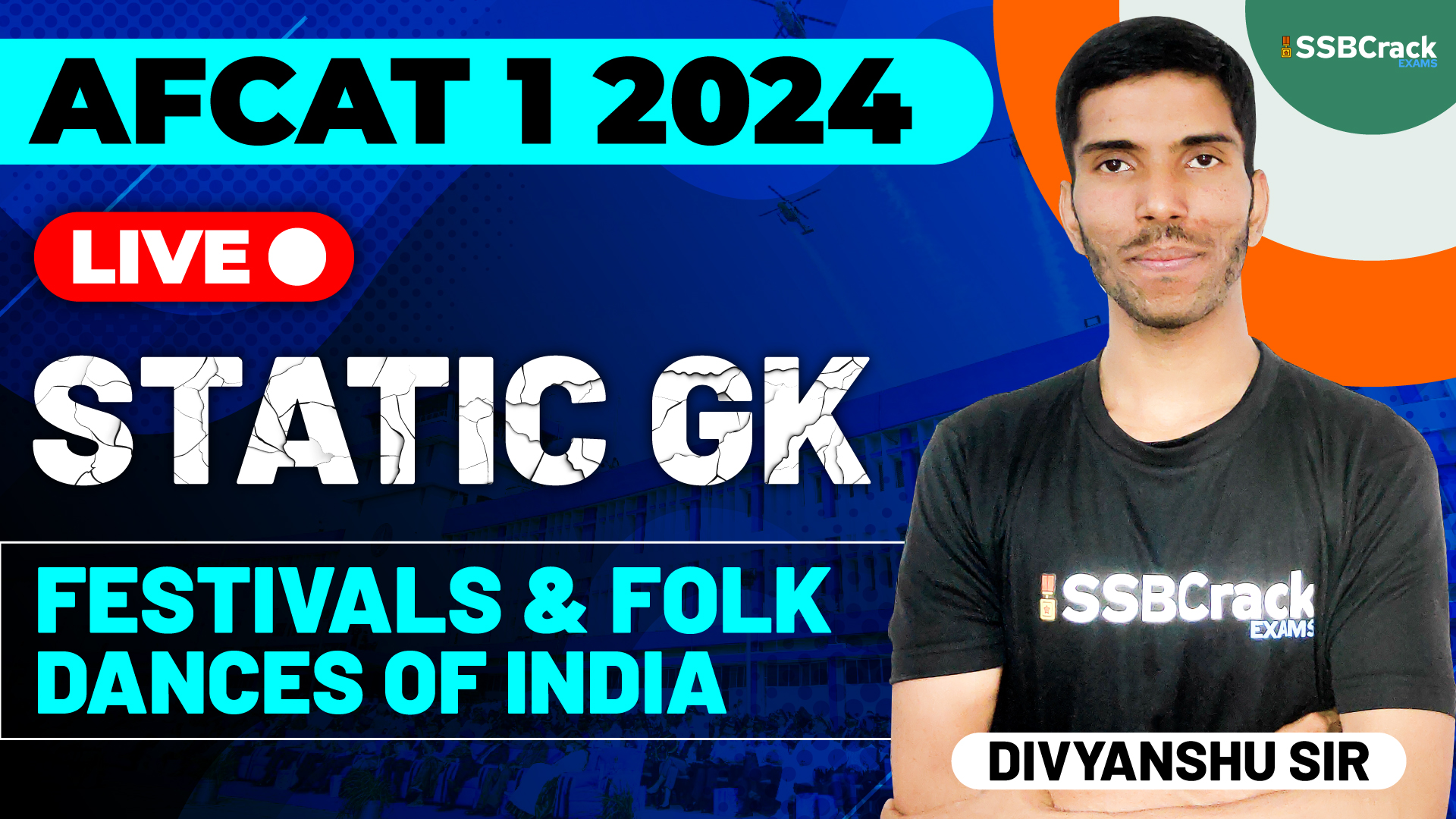Aspiring to serve in the Indian Air Force is a noble pursuit that requires dedication, knowledge, and a well-rounded understanding of various subjects. One of the key areas of focus in the AFCAT (Air Force Common Admission Test) is Static General Knowledge. In this article, we will delve into a crucial aspect of Static GK – the Festivals and Folk Dances of India. Understanding the rich tapestry of cultures and traditions in our country is essential for defense aspirants, as it enhances their appreciation of the diverse nation they aim to protect.
Festivals of India:
- Diwali: Diwali, also known as the Festival of Lights, is one of India’s most celebrated festivals. It signifies the victory of light over darkness and good over evil. The Indian Air Force often conducts special fly-pasts and illuminates its aircraft during Diwali celebrations.
- Republic Day: Celebrated on January 26th, Republic Day is when India’s constitution came into effect in 1950. The grand parade in New Delhi showcases India’s military prowess, and the IAF plays a vital role in the fly-past.
- Independence Day: August 15th marks India’s independence from British colonial rule. The IAF participates in the annual flag hoisting ceremony and a mesmerizing aerobatic display, showcasing its precision and power.
- Eid-al-Fitr and Eid-al-Adha: These two major Islamic festivals are celebrated by millions of Indians. The IAF often conducts humanitarian missions, such as dropping relief supplies, during Eid-al-Adha to aid those in need.
- Holi: The festival of colors, Holi, is celebrated with enthusiasm across India. The IAF also organizes events for its personnel to enjoy this vibrant festival.
Folk Dances of India:
- Bhangra (Punjab): Bhangra is a lively and energetic dance form from Punjab. The IAF’s Punjab Regiment celebrates its cultural heritage through Bhangra performances.
- Kathak (North India): Kathak is a classical dance form that has found its way into various cultural events organized by the IAF.
- Bharatanatyam (Tamil Nadu): This classical dance form from Tamil Nadu showcases the IAF’s commitment to promoting India’s diverse cultural traditions.
- Garba (Gujarat): The vibrant and rhythmic Garba dance is often performed during the Indian Air Force Day celebrations, demonstrating the unity in diversity within the force.
- Ras Leela (Manipur): Ras Leela, a dance-drama from Manipur, is sometimes featured in events attended by defense personnel, highlighting the cultural mosaic of India.
The Significance for Defense Aspirants:
Understanding India’s festivals and folk dances is not only a part of the Static GK syllabus but also essential for defense aspirants for several reasons:
- Cultural Awareness: The Indian Air Force, like the other branches of the military, operates across the length and breadth of India. Familiarity with the local culture, festivals, and dances is crucial to build rapport with local communities, especially during disaster relief operations and community engagement initiatives.
- Uniting a Diverse Nation: India’s strength lies in its diversity. Defense personnel are often deployed in challenging terrains and diverse cultural environments. A deep appreciation of India’s festivals and folk dances fosters unity among personnel and with the communities they serve.
- Representing India: When IAF personnel represent the nation at international events or collaborate with foreign counterparts, knowledge of India’s cultural heritage adds a unique dimension to their interactions, strengthening diplomatic ties.
- Moral Boosting: Participating in cultural events and celebrations uplifts the morale of the armed forces. It instills a sense of pride and belonging, which is essential for the mental and emotional well-being of defense personnel.
Conclusion:
Aspirants preparing for the AFCAT 1 2024 Exam must recognize the significance of festivals and folk dances in their Static GK preparation. This knowledge not only helps in scoring well in the exam but also in embodying the ethos of the Indian Air Force. By understanding and respecting India’s diverse cultural tapestry, defense aspirants become more effective protectors of the nation and its people. The IAF takes pride in its cultural diversity and uses it as a source of strength, bringing the country together under one flag.







